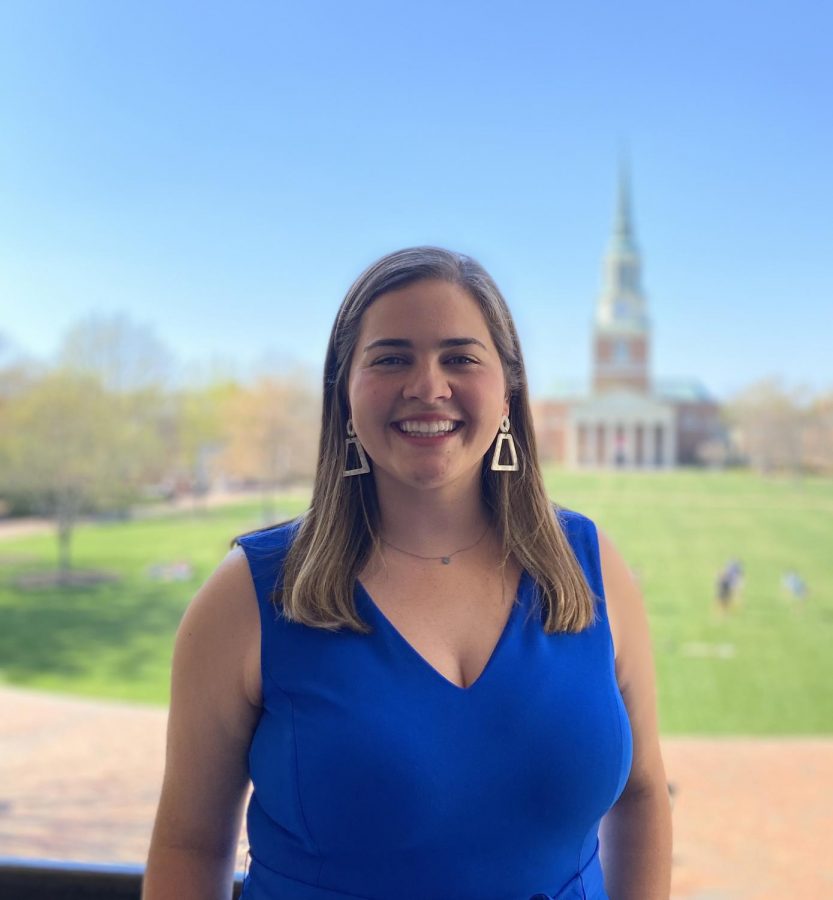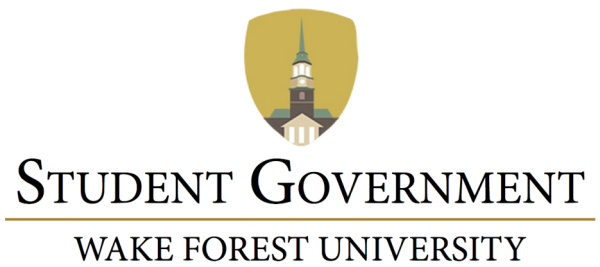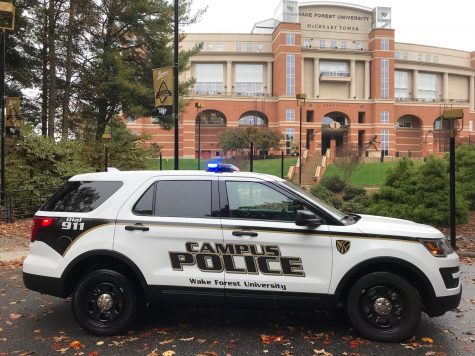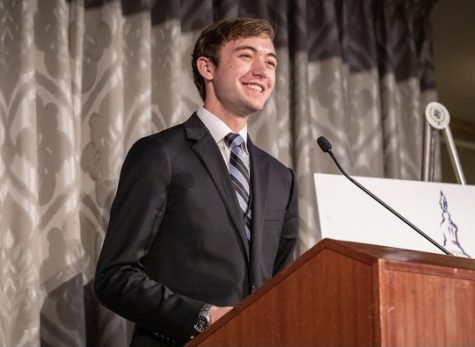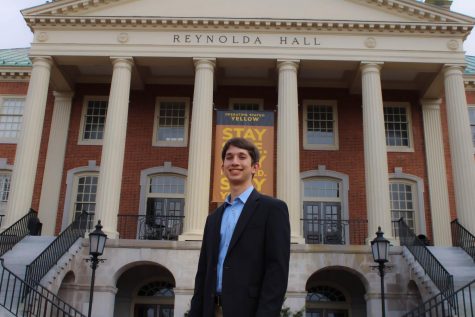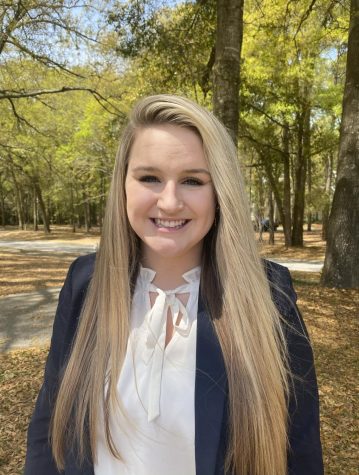President: Caroline Wright
April 10, 2021
Hello, my name is Caroline Wright and I am a current junior at Wake Forest studying Biology with a minor in chemistry. I have served Student Government as a Senator for the past three years, with 1.5 of those as a member of the Presidential Cabinet as the Co-Chair of the Physical Planning and Campus Life Committees. In addition to SG, I have served as a representative on the Capital Project Advisory Committee, currently serve on the Student Activity Fee Committee, and am a member of the Culture of Respect Coalition.
The four main facets of my platform are prioritizing mental health, enhancing the freshman experience, calling for an informed and unified response from the administration surrounding Covid-19 policies, and increasing peer engagement between SG and other campus leaders and organizations. I have chosen these four main focuses because I believe there are actionable goals to each point that are within a realistic reach of Student Government.a
For prioritizing mental health, I would like to make the campus aware of resources outside of learning about them once during New Deac Week by promoting resources through partnerships with WFU P.E.E.R.S. educators and student advocates from the UCC. I would also encourage the administration to fill open spots in the UCC to decrease student wait times. Previously the UCC was in the process of having a staff member learn Mandarin to better connect with international students. In order to offer appropriate support to international students, a counselor with the cultural and lingual fluency to understand the unique challenges of international students at Wake should be hired.
Outside of administrative committees, we have the one of the most direct positions to voice concerns about campus to administrators. In increasing peer engagement, I want Student Government to better fulfill its outward facing role of reflecting the concerns of the entire campus. We need commit to including all student voices in the functions of SG by establishing regular meetings with leaders of identity groups on campus (i.e organizations based on religious, cultural, and sexual orientation). We livestream our meetings and have become more active on social media, but students are still unclear on what SG actually does. I want to increase the visibility and accessibility of SG by making a concerted effort to increase our presence on campus. In order to engage with students, we need to meet students where they are by showing up to speak at organizational meetings and co-hosting more campus-wide events. The emphasis should fall on relational leadership and working with fellow student leaders.
After an especially difficult transition for first year students due to Covid-19 limitations, great attention should be paid to incorporating the newest class of Deacs into the Wake Forest community. The development of community connections and sense of belonging are crucial for the social wellbeing of first year students. I want to advocate for the creation of a peer mentorship program that extends past orientation to work in tandem with Student Advisors. This would provide support through a student mentor with similar extracurricular or academic interests. Many students find upper class mentorship through Greek organizations in the second semester, but this would provide mentorship to students through the first year regardless of social affiliations. I would also work with RAs and RHA to forge stronger hall relationships through hall-sponsored activities to enhance the freshman experience.
While there are many uncertainties for the Fall semester in regard to Covid-19, I want to encourage the university to be informed and unified in its communication to students through the end of the semester and over the summer. The university should reach out to students about the semester as students have had different levels of success navigating the uncertainties and changes to campus life from the year. A more informed administration will be better equipped to make decisions that reflect wide student experience and opinion. There was a lot of confusion surround policy decisions relating to Covid-19 this year as specifics about transitions between operating statuses and consequences for breaking the Code of Conduct were not explicitly stated at the beginning of the semester. This led to rumors and misinformation around campus. Clear communication to student leaders and campus wide emails with policy decisions, sent out as soon as they are made at the administrative level, are crucial to informing the student body and preventing misinformation.


